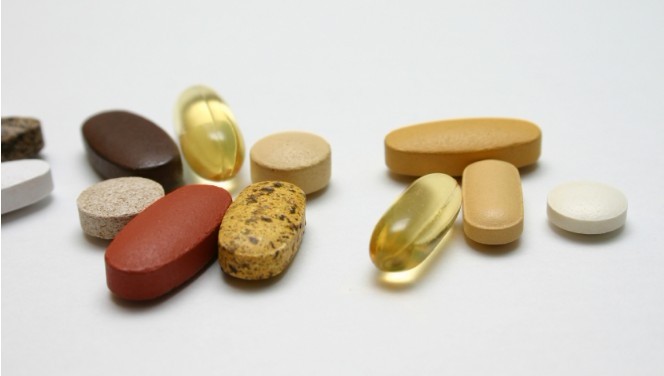Eating Tips During Pregnancy
When I fell pregnant I was really confused as to what I should eat, how much is normal what to avoid etc. If you are in the same boat you might find this information useful!
An increasing amount of research finds that conditions during your pregnancy have the potential to affect your child’s health even decades down the line. For instance, studies suggest relationships between a mother’s nutrition during pregnancy and her child’s risk for being overweight and developing heart disease and diabetes later in life. Thus, eating right now can prevent health problems for your child in the future. So what diet should one follow when you’re pregnant?
There is no one specific diet an individual needs to follow when they are pregnant; instead it comes down to the type of food you’re eating as well as how much weight you gain.
Many women see pregnancy as a time to ‘let go’ and ‘eat for two’, but this should not be the case and pregnant women should not go overboard. One does not need to consume any more kilojoules than your normal daily intake during your first trimester, on average this would be around 8500kJ a day. During your second trimester, you may consume up to around 9500 kilojoules a day (so an extra 1000-1200kJ per day), and finally during your third and final trimester this may go up to 11000kJ a day (an extra 1500kJ). (Please note: These are estimates and will vary between individuals depending on current BMI and necessary weight gain). Refer to Table 1 for Desired Weight gain during pregnancy.
Table 1: Desired weight gain (according to the American Dietetic Association)
| BMI | Recommended Weight Gain |
| Less than 19.8 | 12.5 – 18kg |
| Between 19.8 and 26.0 | 11.5 – 16kg |
| Between 26.0 and 29.0 | 7 – 11.5kg |
| More than 29.0 | At least 7kg |
| Twin pregnancy | 15.9 – 20.4kg |
| Triplet pregnancy | Overall gain of 22.7kg |
Take not that the average is 12.5kg; Shorter women should aim for weight gain at bottom of the range; teenagers should gain weight at the upper end of range
BMI (body mass index) is worked out by dividing your weight by your height squared (weight (kg)/height² (m²) = …kg/m²)
Foods to include in your diet:
- Wholegrain breads and cereals that are high in fibre (6-8 servings a day: 1 serving is a slice of bread or ½ cup cooked cereals)
- Fruits and vegetables that can be eaten with the skin on to increase fibre, and green leafy vegetables to increase folic acid intake (5 servings a day (1 serving fits in your hand/1/2 cup raw) from a variety of coloured fruits and vegetables)
- Protein, focus on meats that are high in iron, if you consume vegetable sources of protein ensure you have a vitamin c rich food/drink with it at the same time (ie: orange juice) to encourage iron absorption (2-3 servings per day: 1 serving = 1 cup cooked beans, or palm size meat, fish or chicken)
- Consume low fat/fat free dairy products to avoid unnecessary energy intake and to meet increased calcium needs. (3-4 servings per day: 1 serving = 1 glass milk or 1 cup yoghurt, small matchbox size cheese)
- Fats and Oils, rather choose monounsaturated or polyunsaturated fats and limit daily intake as many other foods contain fats already (use sparingly)
- Drink plenty of fluids. (at least 8 glasses a day)
Remember to: Take your prenatal vitamin daily for the extra iron and folic acid you need throughout your pregnancy (and before).
Foods to avoid during pregnancy and why?
Avoid seafood high in mercury: Seafood is a great source of protein and provides omega-3 fatty acids which can promote your baby’s brain development. However, some fish as well as shellfish can contain potentially dangerous levels of mercury. Too much mercury could be dangerous to the development of your baby’s development. So what is safe? Some types of seafood contain little mercury. Although concerns have been raised about the level of mercury in any type of canned tuna, the FDA and EPA say pregnant women can safely eat up to 12 ounces (340 grams) a week.
Avoid raw, undercooked or contaminated seafood: To avoid harmful bacteria or viruses in seafood avoid raw fish and shellfish, especially oysters and clams and cook seafood properly.
Avoid undercooked meat, poultry and eggs: During pregnancy, one is at increased risk of bacterial food poisoning and your reaction might be more severe than if you weren’t pregnant. To prevent this: Cook all meats and poultry thoroughly, avoid or limit processes meats, avoid refrigerated pates and meat spreads, cook eggs until they are firm and well done.
Avoid unpasteurized foods: These products could lead to foodborne illness, watch out specifically for dairy products and unless these soft cheeses are clearly labeled as being pasteurized or made with pasteurized milk, don’t eat: Brie, feta, Camembert and Blue cheese. Take note that when selecting eggs, try choosing the pasteurized option.
Avoid unwashed fruits and vegetables: To eliminate any harmful bacteria, wash all raw fruits and vegetables and cut away damaged portions. Cook sprouts thoroughly.
Avoid large quantities of vitamin A: Too much vitamin A may cause birth defects. The Institute of Medicine recommends pregnant women over the age of 19 get 2,565 international units (IU) of vitamin A daily.
Avoid excess caffeine: Caffeine can cross the placenta and affect your baby’s heart rate. Due to the potential effects on your baby it is recommended to limit the amount of caffeine in your diet to less than 200 milligrams a day during pregnancy, which equates to about 2 cups of tea/coffee a day.
Avoid alcohol: No level of alcohol has been proved safe during pregnancy and therefore it is best to avoid alcohol entirely. Research shows that mothers who drink alcohol have a higher risk of miscarriage and stillbirth and too much alcohol can result in fetal alcohol syndrome.
What extras do you need to take in during your pregnancy while exercising?
If you’re maintaining the exercise that you were doing prior to falling pregnant, then the increase in kilojoules will be in line with what was mentioned previously according to your trimesters, however, if you are only now starting to exercise once you have fallen pregnant It would be advised to speak to a health professional to evaluate your exercises and at what intensity you are completing them to ensure your intake is sufficient. Take note that you would still consume a balanced, varied diet to ensure sufficient nutrient intake but possibly in larger quantities. Take note that you need to make sure you eat a low GI carbohydrate containing food 1 ½ hours to 2 hours before exercising to ensure sustained energy throughout your workout and stabilised blood sugar levels. Remember to consume a post-exercise meal or shake that contains both protein and carbohydrates to ensure effective recovery post-exercise. Take note that a meal or meal replacement may be used here. Watch out for any ‘diet’ or unfamiliar sporting supplements as these may contain banned substances that may be harmful to you and your baby. Also remember that when making a shake or meal keep the above mentioned nutritional suggestions in mind to get the most from your meal, note that whatever you’re adding to the shake or meal is also adding to the kilojoules, so choose nutrient dense ingredients to make those kilojoules count. Please consult a health professional before taking any new supplement to make sure of its’ contents.
Take note that FUTURELIFE® products are safe for pregnant women; make for great meals as well as pre- or post-exercise meals or snacks; and can be enjoyed as a porridge, shake or smoothie. Visit our website at www.futurelife.co.za for some smoothie recipes, articles and even send through an enquiry to one of our dietitians.
by: Lara De Santana for @futurelifeZA




Eating Tips During Pregnancy http://t.co/VhiR9EDBJW
Eating Tips During Pregnancy http://t.co/SxsBusccQG